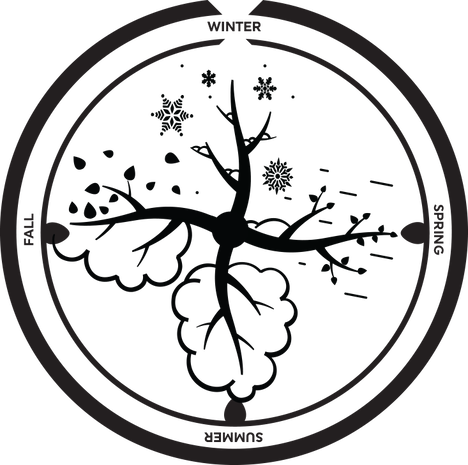Letting the bees just be.
At WPNR, our philosophy is to let the bees do what they do best. We allow our honey bees to live in harmony with nature and build hives that support healthy colonies with minimal human interaction. After all, they're able to survive and thrive in the wild without our help. We use gentle management techniques and do not treat our hives with pesticides, miticides, or other "natural" treatments that wouldn't normally be found in their environment. This supports the honey bee population by building strong genetics and breaking the cycle of human dependency.
bee informed
Our goal: educate the community.
Our goal is to educate the community about sustainable beekeeping practices and the important role pollinators play in our environment, and to provide research opportunities for Saint Vincent College students and faculty. Knowledge is power and understanding the challenges our pollinators face can make a world of difference in their preservation. If you are interested in learning more about beekeeping or honey bees at any level, please call, email or stop by the Learning Barn for more information.
sweet as Honey
It's all about quality, not quantity.
While we all enjoy natures finest nectar, we are robbing our precious pollinators of their sustenance. To that end, we take very little honey from our hives. Western Pennsylvania winters can be long and harsh, and by constantly depleting their food source, we can upset the delicate balance in the colony. The small amounts of honey that we do take is pristine, rich in pollen and the taste reflects the local terroir. We believe it's all about quality, not quantity.
beehives
WPNR has several types
Our apiary includes several types of hives including Kenyan Top Bars, Warre, and the most commonly recognized Langstroth hives. We are always working to expand our apiary to include various designs that allow our students and visitors to experience the breadth and depth of beekeeping.
the buzz on pollinators
Supporting natural habitats
Honey bees (apis mellifera) might be the most popular pollinator, but they are a naturalized non-native species and not our most efficient pollinators. Many other native bees, butterflies, insects, birds, bats, and small mammals in our ecosystem play important roles in pollination. We support their natural habitats by using eco-friendly biodynamic gardening practices, maintaining a healthy native plant landscape, and adhering to a strict no pesticide practice at the reserve. To learn more about pollinators, click here or visit the Learning Barn library to see our full selection of books and field guides.


